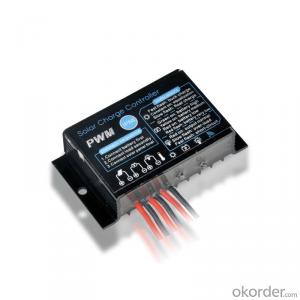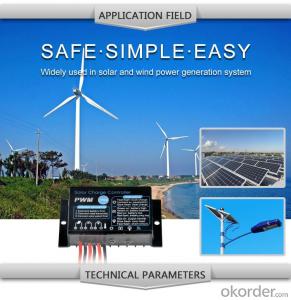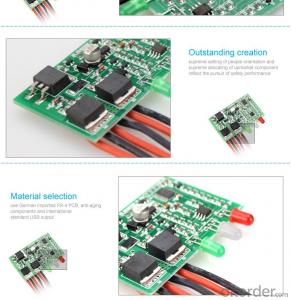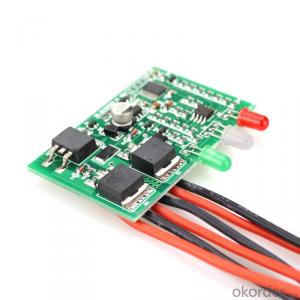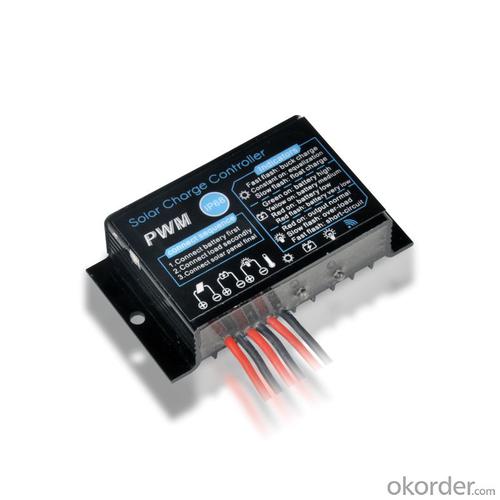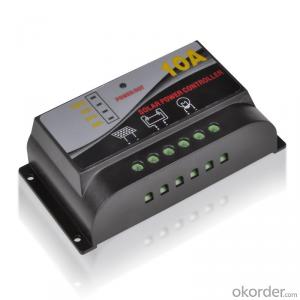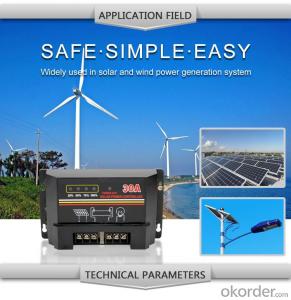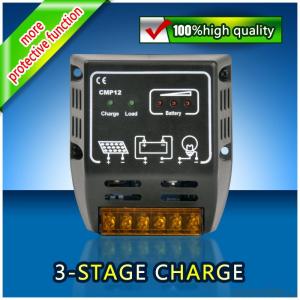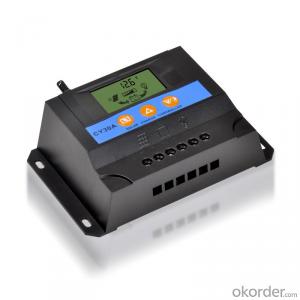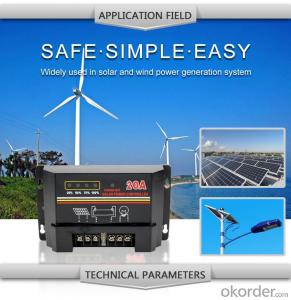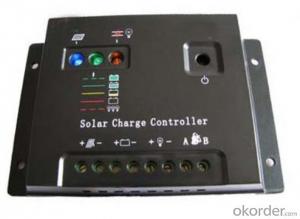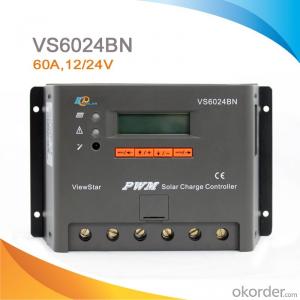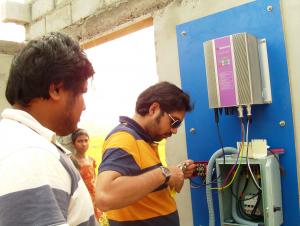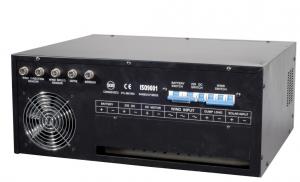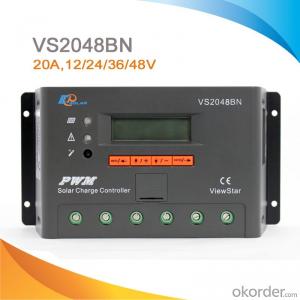Hybrid Solar Charge Controllers - Solar LCD Controller with Best Price Hot Selling Model IR210
- Loading Port:
- China main port
- Payment Terms:
- TT or LC
- Min Order Qty:
- 1 unit
- Supply Capability:
- 10000 unit/month
OKorder Service Pledge
OKorder Financial Service
You Might Also Like
Product Introduction
Solar controller is control device which can control solar panel and transform solar energy into electricity then store to the battery bank. Solar controller is the most important part in offgrid system, whose performance has much effect on life expectancy and operation of the whole system, especially the battery expectancy.
Application Areas
Standalone Photovoltaic power station
Standalone Domestic household photovoltaic power system
Mobil communication base stations, expressway and other non-residential regions.
Coastal islands, remote mountainous, border posts for regions shortage of or without electricity.
Government demonstration projects, landscape lighting project etc.
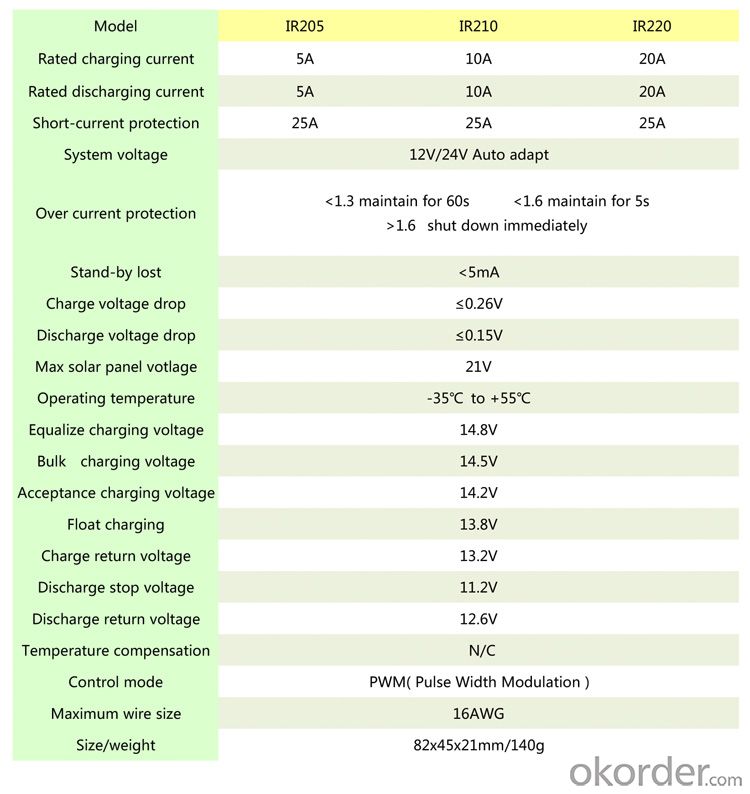
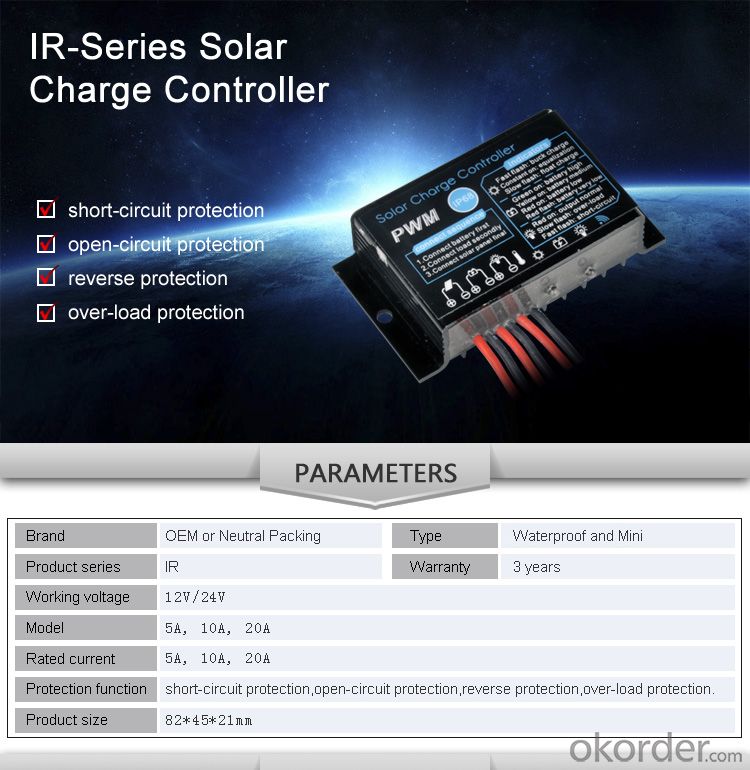
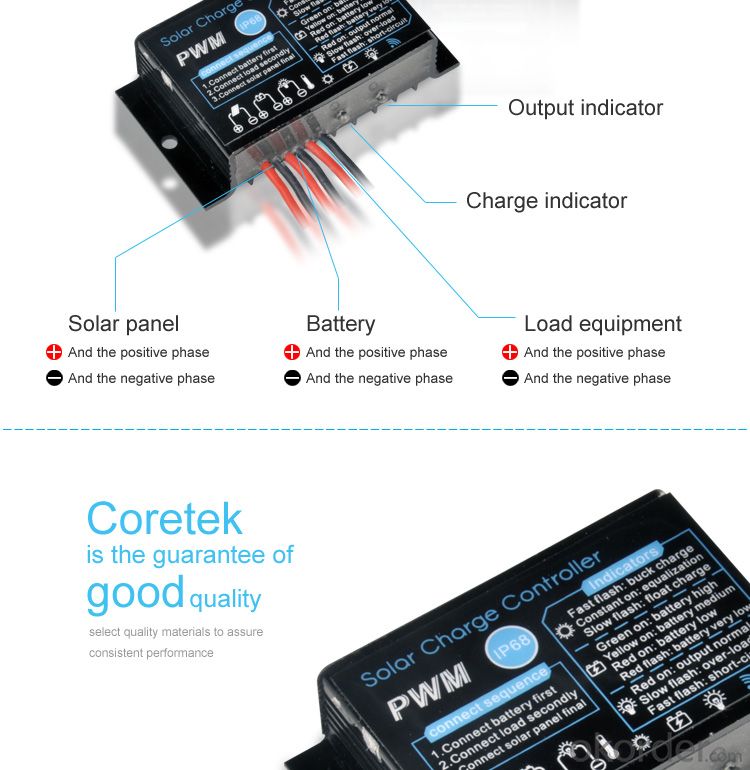
- Q: Can a solar controller be used with a wind turbine as a hybrid renewable energy system?
- Yes, a solar controller can be used with a wind turbine as a hybrid renewable energy system. The solar controller can be employed to regulate the charging of the batteries connected to the wind turbine, ensuring optimal energy storage and distribution. This combination allows for the utilization of both solar and wind energy sources, maximizing the overall efficiency and reliability of the renewable energy system.
- Q: How does a solar controller handle battery temperature monitoring and protection?
- The battery temperature is constantly monitored and protected by a solar controller, which can be achieved by either using a built-in temperature sensor or connecting an external sensor to the controller. By comparing the battery's temperature to a predefined range, the controller determines if any action needs to be taken to safeguard the battery. If the temperature exceeds the upper limit, the controller can either reduce the charging current or disconnect the solar panels entirely from the battery. This is crucial in preventing overcharging and potential damage caused by high temperatures, which can accelerate battery aging and reduce its lifespan. Conversely, if the temperature falls below the lower limit, the controller can adjust the charging voltage to prevent undercharging. Cold temperatures have a significant impact on the battery's performance and capacity, making it essential to ensure proper charging in such conditions. Furthermore, advanced solar controllers may provide temperature compensation as an additional protective measure. These controllers adjust the charging parameters based on the battery's temperature, optimizing charging efficiency and prolonging battery life. This compensation is particularly valuable as it counteracts temperature-related variations in battery chemistry and performance. Overall, a solar controller ensures the battery operates within a safe temperature range, maximizing its lifespan and optimizing performance through continuous temperature monitoring and appropriate protective actions.
- Q: Can a PWM solar controller be used with an MPPT solar panel?
- No, a PWM (Pulse Width Modulation) solar controller cannot be used with an MPPT (Maximum Power Point Tracking) solar panel. MPPT solar panels require an MPPT controller to optimize the power output and efficiency.
- Q: Can a solar controller be used with solar panels that are mounted in different orientations (e.g., horizontal, vertical)?
- Yes, a solar controller can be used with solar panels that are mounted in different orientations. The solar controller's primary function is to regulate and optimize the charging of the batteries connected to the solar panels. It does not depend on the orientation of the panels. However, it is important to note that the efficiency of the solar panels may vary depending on their orientation, which can affect the overall performance of the solar power system.
- Q: Can a solar controller be used with a battery bank that is connected in parallel?
- Yes, a solar controller can be used with a battery bank that is connected in parallel. The solar controller regulates the charging process of the batteries by controlling the amount of current flowing from the solar panels to the batteries. Whether the batteries are connected in parallel or series, the solar controller will still be able to monitor and regulate the charging process effectively.
- Q: Can a solar controller be used with a solar-powered manufacturing plant?
- Yes, a solar controller can be used with a solar-powered manufacturing plant. A solar controller is an essential component of solar power systems, including solar panels, batteries, and inverters. It regulates the flow of electricity from the solar panels to the manufacturing plant, ensuring optimal charging of batteries and protecting them from overcharging. Thus, a solar controller is necessary to efficiently manage and utilize solar energy in a manufacturing plant.
- Q: How does a solar controller prevent batteries from discharging at night?
- A solar controller prevents batteries from discharging at night by detecting the absence of solar power and automatically disconnecting the batteries from the solar panel to prevent any reverse current flow.
- Q: How does a solar controller handle temperature compensation for batteries?
- A solar controller handles temperature compensation for batteries by adjusting the charging voltage based on the battery temperature. As temperature affects the charging efficiency and capacity of batteries, the controller measures the temperature and modifies the charging parameters accordingly to optimize the charging process. This ensures that the batteries are charged at the correct voltage level, preventing overcharging or undercharging, and prolonging their lifespan.
- Q: What is the maximum power consumption of a solar controller?
- The maximum power consumption of a solar controller can vary depending on its specific design and features. Generally, the power consumption of a solar controller is quite low, typically ranging from a few milliwatts to a few watts. This low power consumption allows the controller to efficiently regulate and manage the energy flow from the solar panels to the battery or load.
- Q: Can a solar controller be used with a solar-powered security camera system?
- Yes, a solar controller can be used with a solar-powered security camera system. A solar controller helps regulate and optimize the charging of batteries connected to solar panels, ensuring efficient power management for the camera system.
Send your message to us
Hybrid Solar Charge Controllers - Solar LCD Controller with Best Price Hot Selling Model IR210
- Loading Port:
- China main port
- Payment Terms:
- TT or LC
- Min Order Qty:
- 1 unit
- Supply Capability:
- 10000 unit/month
OKorder Service Pledge
OKorder Financial Service
Similar products
Hot products
Hot Searches
Related keywords
